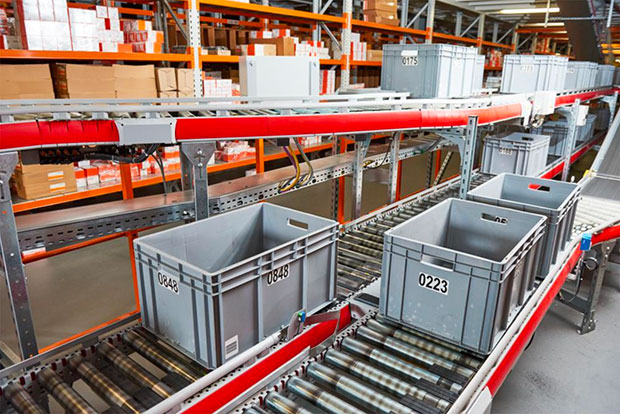Whether you’re a new e-commerce operator or an established web retailer, management of your supply chain is essential for maximising your operational efficiency and delivering high service levels for your customers.
 To make sure your setup is as effective as possible, here are some key considerations for an improved e-commerce supply chain.
To make sure your setup is as effective as possible, here are some key considerations for an improved e-commerce supply chain.
Integrate a warehouse management system into your business
Warehouse management systems allow you to monitor and locate inventory, record the movement of products and measure operational data. Adoption of a warehouse management system also affords businesses the means to monitor and gather essential inventory information, categorise stock and keep track of SKUs, facilitating an improved process flow for heightened efficiency.
Assess your suppliers
It may seem obvious, but ensuring your suppliers deliver on product and service can be the difference between a streamlined, efficient supply chain and inconsistent order fulfilment.
Ask yourself whether the goods you receive from your supplier meet your operational needs, in terms of consistency of quality and reliability of delivery. If you have concerns about quality control or reliability, shop the market to see how your needs can be met more optimally.
While considering the best supplier for your business, look beyond the initial benefit of saving on costs, and find out if paying more will guarantee an improved working relationship, tailored service levels and dedicated account management.
Invest in staff training
In order for your supply chain to run effectively, your workforce should be trained to operate using best practices, both in terms of equipment handling and the following of procedures. To achieve this, invest time and effort in developing robust, high-quality training for both new recruits and established staff members alike.
Emphasising focused training for new staff will ensure they hit the ground running and can add value to your business from day one. Similarly, ensuring longstanding staff members are aware of procedures and company policies will also cut out system inefficiencies and create a more unified understanding of your operation for all staff.
Monitor updates in world politics
After a two-year-long period of disruption – brought about both by the uncertainties of Brexit and the long-term instability of a post-pandemic landscape – it likely comes as no surprise that significant global events often bring with them a host of consequences for supply chains. From changes to trade agreements and sanctions on material production, to disruptions to major shipping routes, a single occurrence in the world of politics and industry often has a profound knock-on effect for those operating with international suppliers and partners.
If your business imports or exports overseas, be sure to stay abreast of major political developments, in order to preempt potential product or material shortages by seeking out new supply lines.
Scale up with multiple distribution centres
In a market where retailers such as Amazon are capable of fulfilling orders and delivering products within a matter of hours, competing can be a challenge. So if your business ships in high volumes across the country, it might be time to consider expanding your operation to include multiple distribution centres.
Beyond simply allowing for shortened delivery times, holding stock at several distribution sites cuts delivery expenses, meaning costs need not be passed on to your customers. Strategically positioning fulfillment points also ensures your service levels are competitive and allows for more robust, responsive resource use when unexpected issues occur.
If you’d like to discuss your packaging needs to increase system efficiencies and boost your service levels, visit allpack.uk.com today, or phone: 01543 396700 to speak to our expert consultants.




Comments are closed.